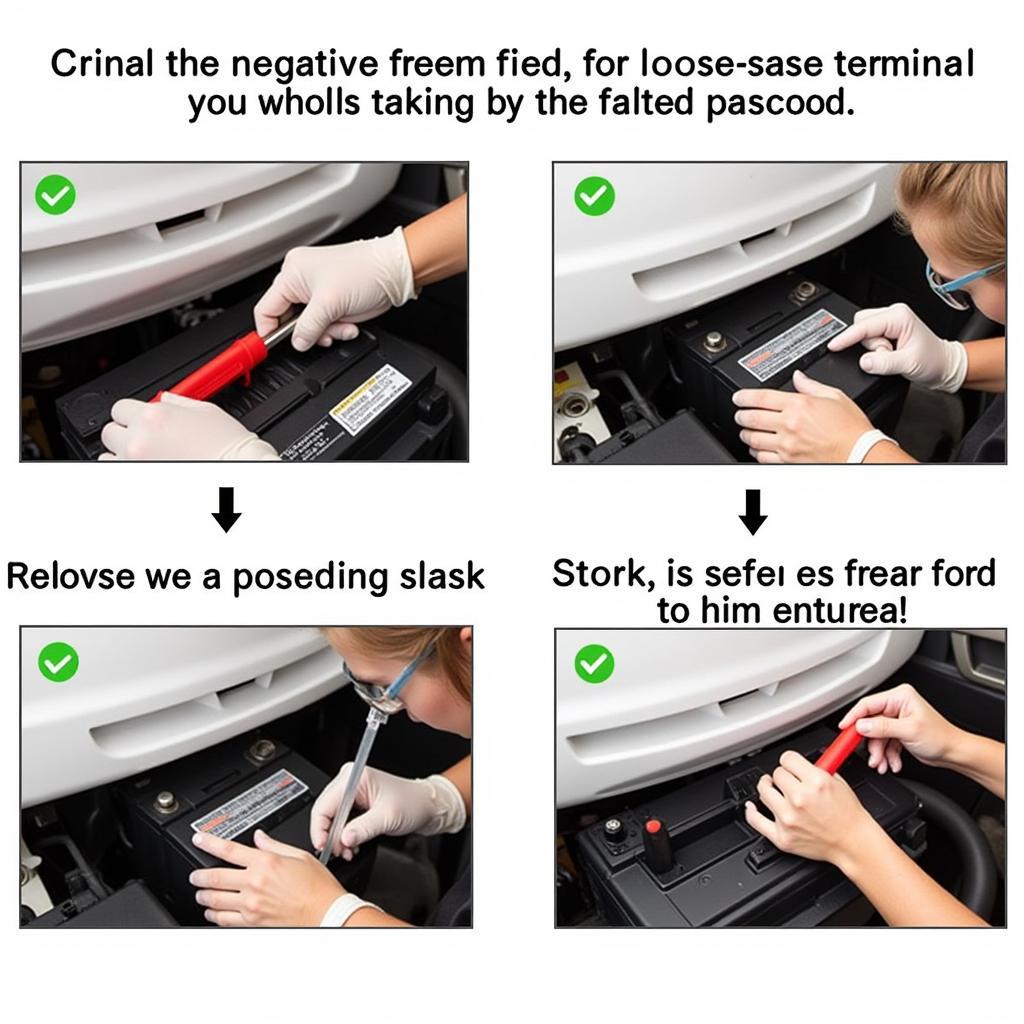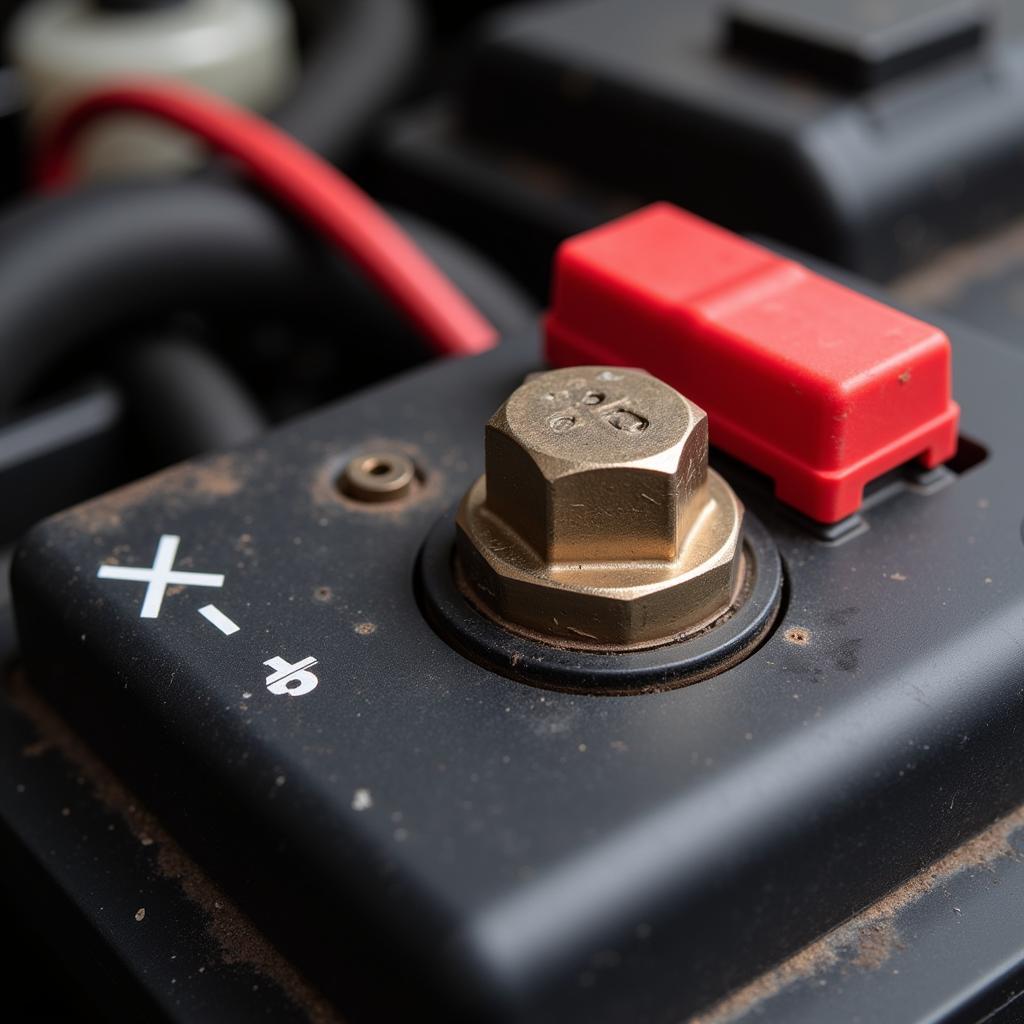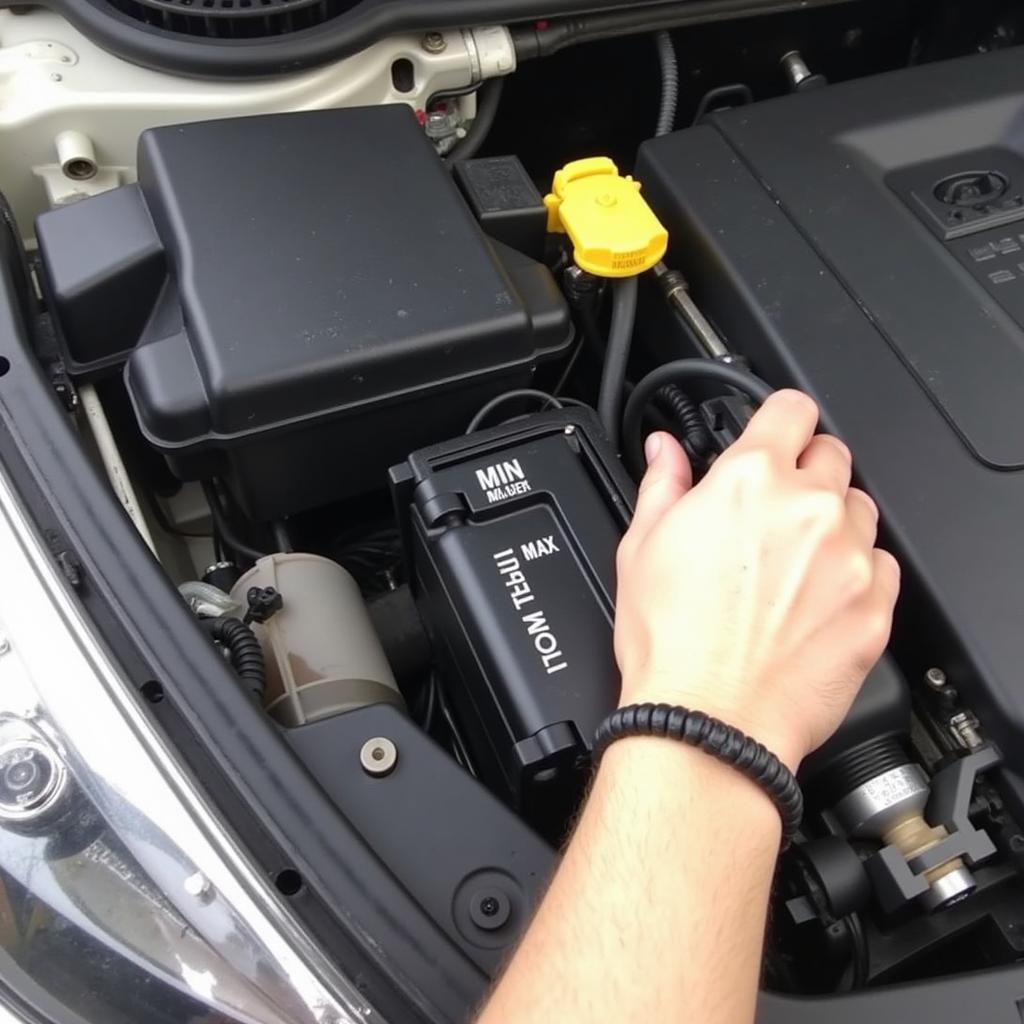Disconnecting a car battery might seem like a simple task, but it can have some unexpected consequences if not done correctly. From losing your radio presets to potentially damaging sensitive electronics, there’s more to it than just popping off the terminals. This article will delve into the intricacies of disconnecting your car battery, explaining the potential risks, the right way to do it, and when it’s absolutely necessary.
Understanding the Impact of Disconnecting Your Car Battery
Disconnecting your car battery essentially cuts off the power supply to all the electronic components in your vehicle. While this can be beneficial in certain situations, it can also lead to some minor annoyances and, in rare cases, even some serious issues.
What Happens When You Disconnect the Battery?
- Loss of Radio Presets and Clock Settings: This is perhaps the most common and least concerning side effect. You’ll likely have to reprogram your radio stations and reset the clock after reconnecting the battery.
- ECU Reset: The Engine Control Unit (ECU) stores learned data about your driving habits and engine performance. Disconnecting the battery can reset the ECU, causing it to forget these learned parameters. This can temporarily affect fuel economy and performance, but the ECU will relearn these parameters over time as you drive.
- Security System Issues: Some car alarms and anti-theft systems can be triggered when the battery is disconnected. Be prepared to disable your alarm system before disconnecting the battery, or have the disarm code handy.
- Potential Data Loss in Modern Vehicles: Modern vehicles are increasingly reliant on complex computer systems. Disconnecting the battery can potentially result in the loss of data in certain modules, although this is less common.
- Power Window and Seat Re-calibration: In some vehicles, disconnecting the battery can disrupt the calibration of power windows and seats. You may need to re-calibrate them after reconnecting the battery by following the instructions in your owner’s manual.
 Disconnecting Car Battery Process
Disconnecting Car Battery Process
When is it Necessary to Disconnect the Car Battery?
While it’s generally best to avoid disconnecting your car battery unnecessarily, there are certain situations where it’s essential:
- Electrical Work: Any time you’re working on the electrical system, such as replacing a starter or alternator, disconnecting the battery is crucial for safety. This prevents accidental shorts and potential injury.
- Long-Term Storage: If you plan on storing your vehicle for an extended period, disconnecting the battery can prevent it from draining completely.
- Jump Starting Another Vehicle: When jump-starting another car, it’s important to connect the jumper cables correctly to avoid damaging the electronics in either vehicle. This often involves momentarily disconnecting the negative terminal of the good battery.
- Replacing the Battery: This one’s pretty self-explanatory. You’ll need to disconnect the old battery before installing a new one.
How to Safely Disconnect Your Car Battery
- Gather Your Tools: You’ll need a wrench (usually 10mm or 13mm) and, ideally, a pair of gloves and safety glasses.
- Locate the Battery: The battery is typically located under the hood, but it can sometimes be found in the trunk or under the rear seat.
- Disconnect the Negative Terminal First: Use the wrench to loosen the nut on the negative terminal (marked with a “-” symbol). Carefully remove the cable from the terminal.
- Disconnect the Positive Terminal: Repeat the process for the positive terminal (marked with a “+” symbol).
 Car Battery Terminals
Car Battery Terminals
“Always disconnect the negative terminal first,” advises John Smith, Senior Automotive Electrical Engineer at AutoTech Solutions. “This minimizes the risk of accidentally shorting the positive terminal to ground.”
Long-Term Effects of Frequent Disconnections
While occasional disconnections are usually harmless, frequently disconnecting and reconnecting the car battery can potentially shorten its lifespan. This is because the charging and discharging cycles can put stress on the battery’s internal components.
Is it bad to disconnect car battery for a short period?
Disconnecting your car battery for short periods, like a few minutes, is generally safe and won’t cause any significant problems. However, extended disconnections can lead to the issues described above.
“Modern vehicles are designed to handle occasional battery disconnections,” adds Sarah Jones, Lead Diagnostic Technician at Apex Automotive. “But it’s always best to consult your owner’s manual for specific recommendations for your vehicle.”
Conclusion
Disconnecting a car battery isn’t inherently bad, but it’s essential to understand the potential consequences and follow the correct procedure. By taking the necessary precautions and knowing when it’s appropriate, you can avoid any unwanted surprises and keep your vehicle running smoothly. Remember to always consult your owner’s manual for specific instructions related to your car model.
FAQ
-
Will disconnecting my car battery reset the check engine light? Possibly, but it’s not a guaranteed fix. If the underlying issue that triggered the light persists, it will come back on.
-
How long can I leave my car battery disconnected? This depends on the battery’s age and condition, but generally, a few weeks to a couple of months is safe for a healthy battery.
-
Do I need to disconnect the battery when jump-starting my car? It’s generally recommended to disconnect the negative cable of the dead battery while connecting the jumper cables to avoid sparks and potential hazards.
-
Can disconnecting the battery fix electrical problems? It might temporarily fix some issues related to software glitches, but it won’t solve underlying hardware problems.
-
Will disconnecting the battery drain it? No, disconnecting the battery actually prevents it from draining, as it isolates it from any power draw from the vehicle’s electrical system.
-
Do I need a special tool to disconnect the battery? A standard wrench is usually sufficient, but some vehicles may require specific tools.
-
What should I do if my car won’t start after reconnecting the battery? Double-check that the terminals are securely connected. If the problem persists, there might be a more serious electrical issue that requires professional attention.

